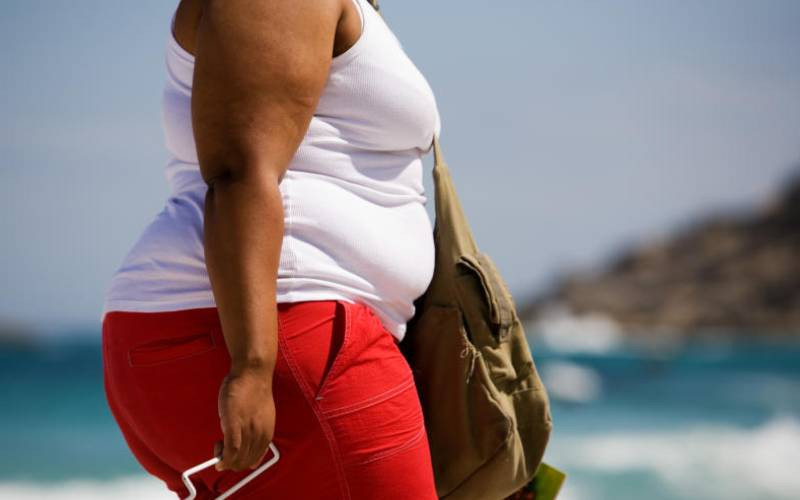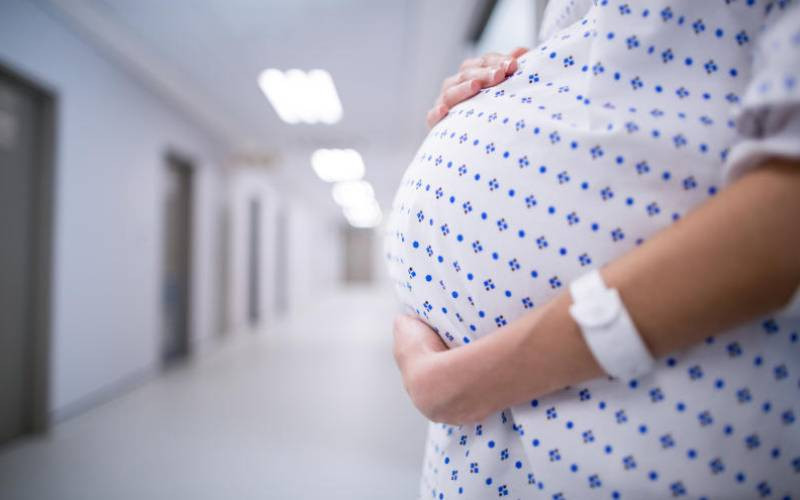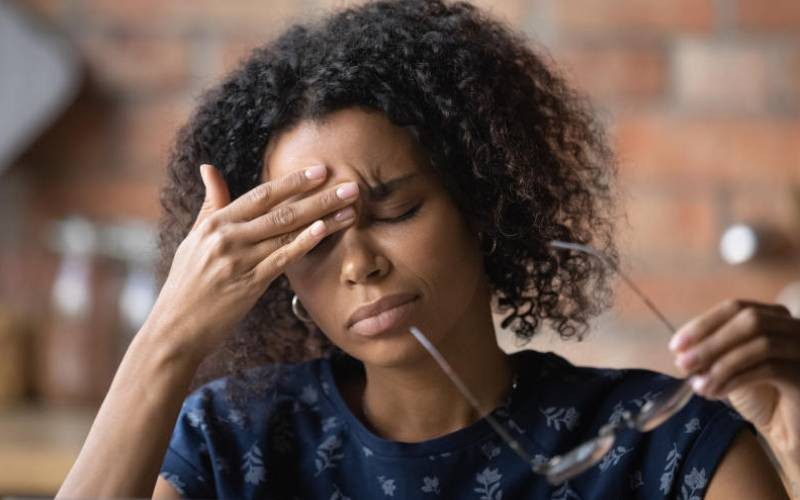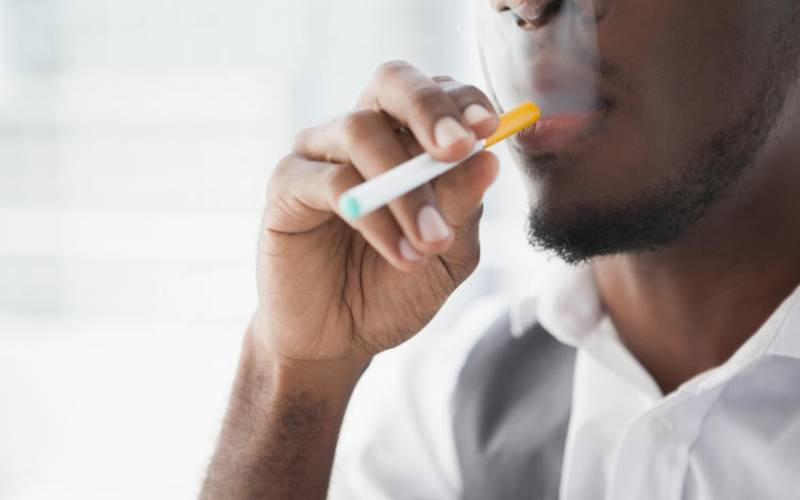
Why is caffeine so addictive?
Dr Chidi explains: “Caffeine – along with other drugs such as cocaine and nicotine – is particularly addictive because it goes straight to the brain.”
It triggers a fast release of the stimulant adrenalin, which makes you feel more alert and is why we crave coffee so much in the morning.
But while your first tea or coffee may perk you up, studies show beyond this first high you don’t get much more of a kick from further cups.
More disappointingly, that first cup probably doesn’t even boost your work performance.
During one study, the typing levels of two groups of secretaries were monitored – one group who had no coffee, the other up to five cups.
While the coffee drinkers typed faster, they made 10 times as many mistakes.
Furthermore, when a caffeine buzz wears off, you end up feeling twice as tired as you were before.
Dr Chidi says: “This is because brain chemistry doesn’t like being interfered with by taking stimulants, so it releases chemicals that dampen the alert response. This lowers energy levels and mood, so you feel like another coffee – which continues the cycle.”
A danger to your heart
Addiction isn’t the only worry from too much coffee – there is very real evidence that for certain people, caffeine can pose an even more deadly health threat.
“It’s well-established caffeine increases blood pressure,” says Dr Chidi. “In fact, if you’ve been diagnosed with high blood pressure there’s almost no point taking medication if you’re going to be drinking tea or coffee as it cancels out the lowering effects of the drug, putting you at higher risk of heart attack or stroke.”
A report in the US Journal of Caffeine Research claimed regular caffeine intake may account for 14% of premature deaths due to coronary heart disease and 20% of premature deaths due to stroke. A high caffeine intake has also been strongly linked with miscarriage.
Are there any benefits?
Confusingly, for all the negative effects of drinking caffeinated drinks, we are constantly being presented with new studies that claim great benefits.
Recent research, for example, found tea and coffee drinking may reduce the risk of developing diabetes, certain cancers and Parkinson’s disease. So what’s the truth?
Experts are quick to point out none of the suggested benefits are likely to be down to caffeine, but rather the antioxidants drinks also contain – these are natural disease-fighting compounds that lower inflammation.
Inflammation has been linked to conditions including heart disease and cancer, so antioxidants consumed in tea and coffee may reduce the risk of developing these diseases.
But these potential benefits also have to be weighed up with the possible negative health effects the caffeine has on us.
Is decaf a good alternative?
Issues of taste aside, switching to a decaffeinated cuppa seems like a good compromise and, on the plus side, there are similar levels of antioxidants to be found in decaf tea and coffee.
However, you should pay close attention to the label. Dr Chidi warns: “The solvents used in the decaffeination process may be dangerous.
“Look for tea and coffee that has been decaffeinated using carbon dioxide, which doesn’t have the same risks.”
Are YOU having too much?
It’s recommended you don’t exceed 400mg of caffeine per day (200mg if pregnant) - but how much do your favourites below contain?
A large Americano - 300mg
A cup of home-made filtered coffee - 150mg
A takeaway latte – 150mg
Mug of instant - 100mg
2 x Anadin Extra painkillers – 90mg
Can of Red Bull (250ml) – 80mg
Cup of tea - 75mg
An espresso – 70 mg
Bar of plain chocolate (50g) – 50mg
Can of Diet Coke – 42mg
Cup of green tea – 40mg
Tips on quitting
Nutrition expert Chris Simon from monkeynutrition.com gives top tips on how to cut out caffeine…
Choose green tea over ordinary tea or coffee. It has a fraction of the caffeine, is packed with antioxidants and fills the “hot drink” void.
Cut down on sugar. Reaching for coffee is usually because of an energy crash that is caused by eating sugary foods.
Sprinkle cinnamon on to food. It helps avoid energy crashes by regulating blood sugar.
Try a natural light alarm clock to help you wake up more gently – you’ll feel more alert in the mornings and less dependent on caffeine (from £59.95 at lumie.com ).
Drinking 20 cups of coffee a day made me paranoid
Mark Thompson, 32, is a professional boxer from Rochdale, Greater Manchester. He only realised his coffee drinking was harmful when he tried to cut down.
On a bad day, I could drink up to 20 cups of coffee, but 12 was probably my average. I drank instant black coffee and reaching for a cup was the first thing that I would do every morning.
I even went to bed with a coffee – and would make myself one if I woke in the night.
But I didn’t think I was addicted – it’s such a normal everyday drink, you don’t think that it could be doing you any harm.
I now realise it was making me feel paranoid, edgy, bad-tempered and giving me headaches, dehydration and stopping me sleeping. I even went to the doctor about my insomnia, but I still refused to believe that it was down to all the coffee.
I started drinking a lot of coffee in my twenties when I first became a professional boxer – I used it to keep my energy levels up and as a replacement for eating chocolate.
But the buzz it gave me was always short-lived. I’d go for a run or training session and after 10 minutes would crash and feel exhausted.
It was only when I started getting advice from the trainers at Monkey Nutrition that I realised I had to dramatically cut down on coffee – and ideally cut it out altogether.
They explained I was using it as a food replacement and taking in dangerously high caffeine levels. They got me eating healthy high-protein meals and cut me down to just four cups a day.
At first it was terrible – I was waking up with severe headaches, nausea and the shakes, plus I was in such a bad mood – really argumentative. I explained to my partner it was as tough as someone trying to quit smoking.
After two weeks, I started to feel 100 times better. I now have more energy, the headaches and paranoia have stopped and I’m sleeping well for the first time in many years.
I now drink green tea instead, which contains much less caffeine, and take tea bags with me everywhere.
I’ve still never gone a full day without a coffee, but I try to have my four cups in the first half of the day and my goal is to get down to just one each morning.”
 The Standard Group Plc is a multi-media organization with investments in media platforms spanning newspaper print
operations, television, radio broadcasting, digital and online services. The Standard Group is recognized as a
leading multi-media house in Kenya with a key influence in matters of national and international interest.
The Standard Group Plc is a multi-media organization with investments in media platforms spanning newspaper print
operations, television, radio broadcasting, digital and online services. The Standard Group is recognized as a
leading multi-media house in Kenya with a key influence in matters of national and international interest.










